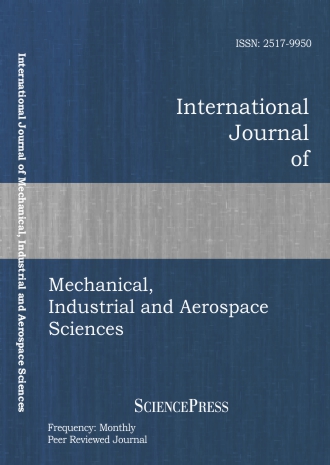
Scholarly
Volume:3, Issue: 12, 2009 Page No: 1606 - 1611
International Journal of Mechanical, Industrial and Aerospace Sciences
ISSN: 2517-9950
Independent Design of Multi-loop PI/PID Controllers for Multi-delay Processes
The interactions between input/output variables are a very common phenomenon encountered in the design of multi-loop controllers for interacting multivariable processes, which can be a serious obstacle for achieving a good overall performance of multiloop control system. To overcome this impediment, the decomposed dynamic interaction analysis is proposed by decomposing the multiloop control system into a set of n independent SISO systems with the corresponding effective open-loop transfer function (EOTF) within the dynamic interactions embedded explicitly. For each EOTF, the reduced model is independently formulated by using the proposed reduction design strategy, and then the paired multi-loop proportional-integral-derivative (PID) controller is derived quite simply and straightforwardly by using internal model control (IMC) theory. This design method can easily be implemented for various industrial processes because of its effectiveness. Several case studies are considered to demonstrate the superior of the proposed method.